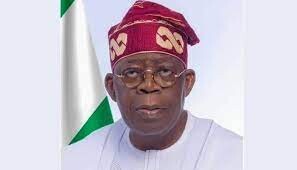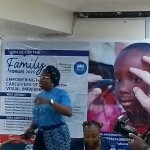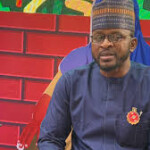President Bola Tinubu’s media and legislative aides received an advocacy group of journalists who came midweek to present a report on the plight of PWDs in Nigeria, and, as expected, the presidency gave the rights journalists a boilerplate of a response.
The Journalists for Democratic Rights (JODER) highlighted issues of exclusion from the political and media spaces, blaming Nigeria’s election management body and the media for treating disabilities as an afterthought and emergency.
JODER noted that some of the challenges were posted in the last elections in the same pattern for previous ones when the INEC did not make provision for PWDs to enhance their capacity to vote with ease, said Adewale Adeoye, the executive director of the group.
He did not back his highlight with fact, though.
INEC, however, made some provision, according to a Feb. 17 pre-election report by IFA which claimed it deployed 250 observers in 21 states and the FCT to monitor the last elections that took place in over 176,000 polling units across more than 770 LGAs.
Inclusive Friends Association (IFA) Executive Director Grace Jerry commended INEC for taking steps to make elections in Nigeria more inclusive, though she claimed 60 percent of the polling units had no braille ballots for blind voters, and 75 percent had no magnifying lenses for albinos.
But neither INEC nor IFA, which claimed voters with disabilities turned out ‘en masse’, has been able to provide ER with the figure of PWDs, out of over 30 million, that voted or were voted for in the elections. Nigeria however recorded its lowest voters’ apathy in the election in 44 years: about 24 million (27 percent) voted out of over 90 million that registered.
For media, Adeoye commended them for pushing the rights of PWDs in Nigeria. “But efforts are far from being enough,” he said, noting how some media consider PWDs as “less important in the allocation of media space“.
Responding to the group, Tunde Rahman, the special media aide to the president, said the administration is committed to addressing the challenges of the PWDs and other vulnerable communities. He gave no specific plan or policy the new administration is working on in that respect.
Such sympathetic response was the stock-in-trade of immediate past President Muhammadu Buhari who signed the Discrimination Act 2018 to law, a law nobody bothers to fully implement, considering the PWDs’ level of access to social services in Nigeria.
Only 274,000 members of the disability community registered on the national social register on which there are about 60 million Nigerians the current subsidy removal palliatives policy may target.
Tinubu’s legislative aide Ibrahim Olanrewaju responded to JODER in like manner: The president and the National Assembly are aware of the situation of PWDs, and the two arms will prioritise the needs for greater inclusion.
The Discrimination Act, if enforced, will take care of most of what JODER and other advocates demand from the government. But the government that made the law is not quick to implement it, and those for whom it made the law stand helpless for now.
The transitory period of five years the Act framers gave will end next February.
The disability community and rights advocates hope all this moral persuasion will then end, and they can go ahead to enforce the provisions in court.
Skeptics, however, insist justice comes at a cost which the deprived community might not be able to afford.







